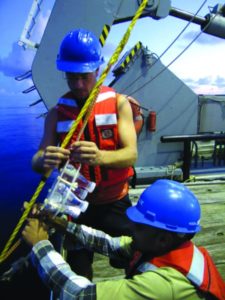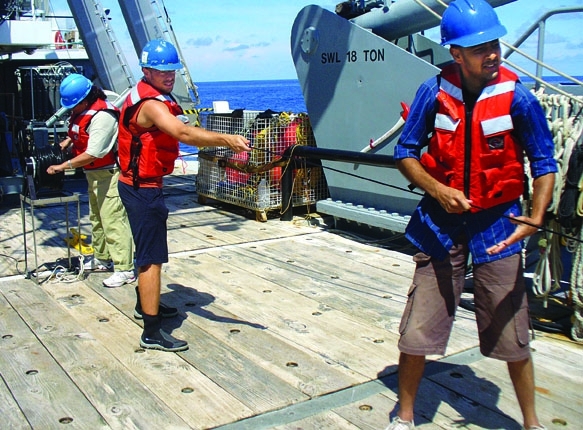
Presentation on Pillar II, recorded Jan 2021 for POGO-22 Meeting.
Short video on Capacity Development
In the Sao Paulo Declaration of 2001, POGO drew attention to the world imbalance between Northern and Southern Hemispheres in the capacity to observe the oceans, recommending immediate action to enhance such capacity in developing countries. Since then, capacity development has been a central element of the POGO agenda. Over the years, POGO has developed an extensive array of training programmes targeted primarily at early-career scientists from developing countries. Of equal importance is the continued support POGO provides to its alumni, particularly through the NF-POGO Alumni Network for Oceans (NANO) and its collaborative ocean observation projects. POGO also recognises that new technologies, and the emergence of low-cost technologies for ocean observing, can provide solutions to enhance ocean observations in developing countries and fill current gaps in data coverage. To this end, POGO is funding two projects on developing low-cost sensors for coastal monitoring: OpenMODS and SAGITTA.
In the Sao Paulo Declaration, POGO also underscored the relative paucity of ocean observations in the Southern Hemisphere compared with the Northern Hemisphere. In response, in 2003-04, POGO member JAMSTEC organised a circumnavigation of the Southern Hemisphere, the BEAGLE Expedition, using its ship Mirai, at a cost estimated to be around $35M. This was followed some 5 years later by the establishment of the AMT Shipboard Training Fellowship and lead to the development of an extensive shipboard training programme, funded by the Nippon Foundation.
In 2001 POGO also established a Visiting Fellowship programme, initially in partnership with IOC and SCOR, and which continues to this day in partnership with SCOR. The Nippon Foundation has been a major sponsor of POGO capacity development, particularly through the establishment of the NF-POGO Centre of Excellence in Observational Oceanography, now hosted by the Ocean Frontier Institute, in partnership with the Faculty of Open Learning and Career Development, Dalhousie University, the Fisheries and Marine Institute of Memorial University, and the Hakai Institute.
The POGO capacity development programme is highly regarded, receives very positive feedback from both those receiving and providing the training, has had a demonstrable impact on individuals as well as institutions, and is often used as an exemplar for successful training and capacity development. The POGO Secretariat and members have shared POGO’s experience and lessons learnt with other organisations, through presentations and posters at conferences, informal discussions and publications.



